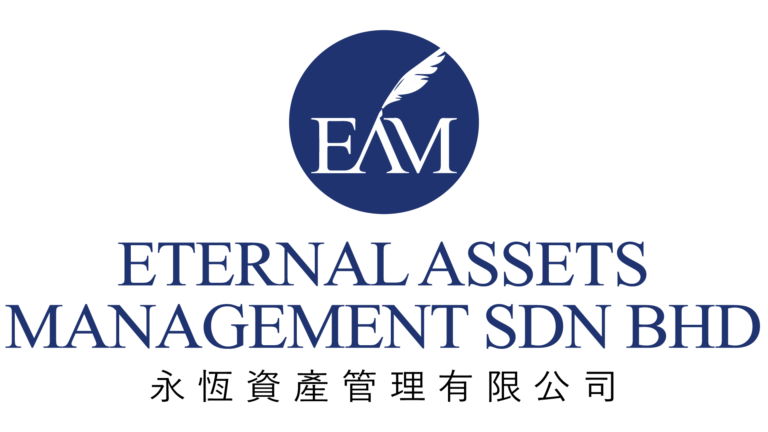

Our Objectives
Professional Service Safe-keeping System
Our objectives are not only to provide our clients with the most professional service, but also to promote the importance of a Will in upholding our clients’ best interest. In addition, in order to avoid any leakage of our clients’ information and the lost or damage of the Will, we have developed a high-tech, complete and standardized safe-keeping system to ensure our clients’ privacy and Will can be protected.
Our Services
1
We provided a range of professional services, including drafting wills, drafting agreements, custody of will, estate planning and execution of wills.
2
We play an important role in protecting our clients' most valuable assets with a complete and standardized system.
Let's listen from our expertise
FAQ
A Will is a document, considered as a legal declaration of the intention of a Testator about the distribution / disposal of his possessions / assets / properties etc. after his death.
Having a Will enables you to:
- Choose your beneficiaries;
- Choose how your assets are to be distributed;
- Choose your trustee and executor;
- Set up a testamentary trust for your minor children, heirs with special needs or charities;
- Choose the guardian of your minor children;
- Minimise the chances of family disputes over property;
- Expedite the legal process;
- It costs less in term of legal fees;
- Express your wishes for your funeral arrangements.
If you die intestate:
- Your assets will be distributed according to the Distribution Act 1958;
- The court will appoint a trustee and executor to administer your estate;
- The court will appoint a guardian for your minor children, and the person appointed may not be your preference;
- The distribution process will take longer and cost more, ordinarily requiring a bond and the appointment of 2 sureties to guarantee the proper administration of the estate, as well as further court orders to effect the transfer of real property;
Section 6 of the Distribution Act 1958 sets out various scenarios for intestacy and provides a fixed formula for the distribution of the person’s assets. The following are some examples:
- Leaving a spouse, children and parents: spouse ¼ , children ½, parents ¼
- Leaving a spouse and parents but no children: spouse ½ , parents ½
- Leaving a spouse and children but no parents: spouse ⅓ , children ⅔
- Leaving children and parents but no spouse: children ⅔ , parents ⅓
- Leaving no spouse, children or parents, then the following persons are entitled in accordance of priority: brothers and sisters; grandparents; uncles and aunts; great grandparents; great uncles and aunts; government.
To make a valid will, you must:
- Be at least 18 years old;
- Sound mind;
- Have your will in writing;
- Have signed your will;
- Have your signing witnessed by at least 2 witnesses who will then sign in your presence and in the presence of each other. (Witness cannot be someone who is beneficiary of the your Will, or he or her spouse.
Once executed, your Will will remain valid until it is replaced by a new Will, cancelled in writing or intentionally destroyed. If you get married or remarried, or convert to Islam, your Will will automatically be revoked.
The executor’s job is to ensure your Will will be duly execute. This will involve your executor: (1) locating your Will, (2) applying to the court for Grant of Probate, (3) calling your assets, (4) paying off your debts, (5) distribute assets based on your Will, and (6) prepare account statements.
You can appoint any adult (18 years or older) to act as your executor and trustee. You can appoint between 1 to 4 executors to jointly administer your estate. Alternatively, you can appoint a trust company to act as your executor and trustee.
Yes, your executor may also be a beneficiary to your estate.
You are encouraged to inform and obtain the consent of the person who you want to be your executor and trustee.
You should keep your original Will in a safe place. You may also engage the services of a Will depository to secure your Will.
As a general rule, the courts will require your original Will before allowing a grant of probate. However, a duplicate copy of your Will can be accepted if it can be proven that the original is lost or destroyed without intending to revoke the Will.
Your executor or trustee have the rights to deduct from the estate expenses reasonably incurred in managing the estate, including the estate, legal fees that have been incurred.
Ideally, your Will should deal exclusively or collectively with all your . You may consider the following:
- Immovable property: land and buildings, residential, commercial, industrial or agricultural properties;
- Personal property: cash, bank balances, shares, transferrable memberships, vehicles, movable furniture, clothing, jewellery, etc.;
- Intellectual property: copyrights, patents, designs;
- Trust property: property which is being held by a trustee on trust for your benefit;
- Future benefits: assets which you expect to receive in the future, including an inheritance.
You do not need to explicity list all your assets in your Will; usually you only need to refer to your assets such as all my real property. However, it is advisable to state the particulars of all your existing properties as this will make it easier for the executor to identify and call in your assets.
Your Will should include a residuary clause which deals with the distribution of all your assets which are not specifically covered by any other clause in your Will. If you want to specifically deal with a new acquisition in your Will, you will either have to execute a new Will or a codicil.
Any benefits under the insurance policy will be paid to the persons nominated by you under the policy. Your Will cannot override nominations under the insurance policy.
Your Employees Provident Fund (EPF) payment will also be based on your nomination registered in the EPF. However, if the EPF has no record of your nominations, it will be paid in accordance with your Will.
Yes, your Will can include with both assets within Malaysia and abroad. In order to enforce your Will abroad, your executor may need to re-seal the grant of probate in a court of the foreign jurisdiction.
If your children are under 18 years of age, you should appoint a guardian in your Will. If both parents die when the children are under 18 years of age, a guardian needs to be appointed.
The Will may be questioned because the content has been changed, your signature has been forged or the witness has not been properly witnessed. It may also be said that you were unsound mind or improperly influenced when you made the Will.
Ambiguity or important omissions in your Will can cause controversy. If you intend to exclude your spouse or any of your children from the Will, it is advisable that you do so explicitly. Giving a reasonable reason for exclusion will reduce the chances of a successful contest.
If you are making your will under circumstances where the soundness of your mind may later be called into question, it is advisable to have your doctor examine you and certify that you still of sound mind. If there is a challenge, your doctor may be required to testify accordingly.
No. A Will need not be stamped.
No. Any person who dies on or after 1/11/1991 will not subject to any estate duty in Malaysia.
Contact Us

Branches
KL HQ
Wisma Uoa Centre, Suite 19A-02, 31st and 32nd Floor, Business Suite, 19, Jalan Pinang, Kuala Lumpur, 50450 Kuala Lumpur
Sentul Branch
1-3A, 1st floor, Sentul Village Shop Office, Jalan Sentul Perdana, Sentul, 51000 Kuala Lumpur
Bangsar Branch
D-17-01, Menara Suezcap 1, KL Gateway,
Gerbang Lestari Kerinchi, No 2, Jalan Kerinchi
59200 Kuala Lumpur
©️ Copyright 2023. All Rights Reserved by Eternal Assets Management